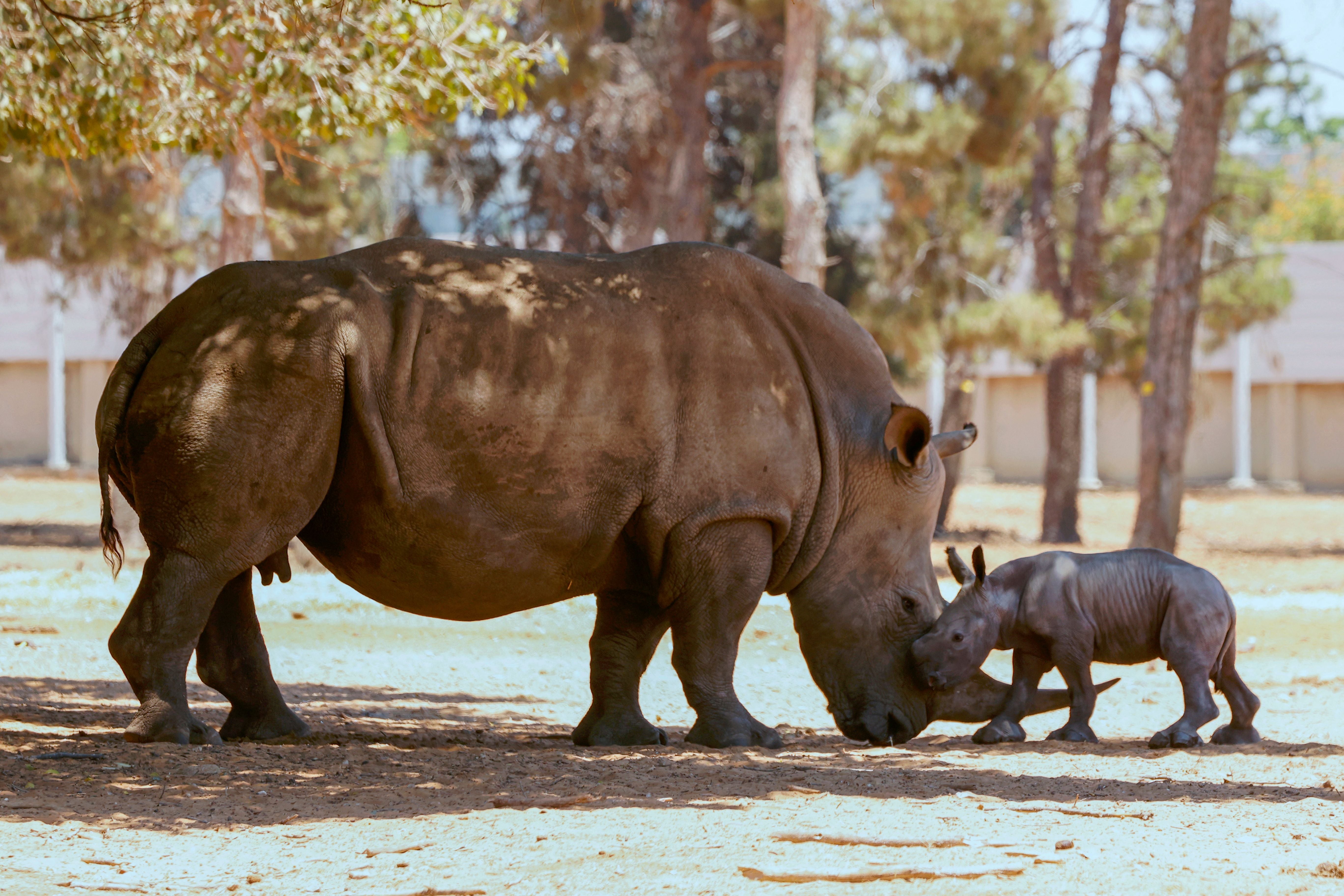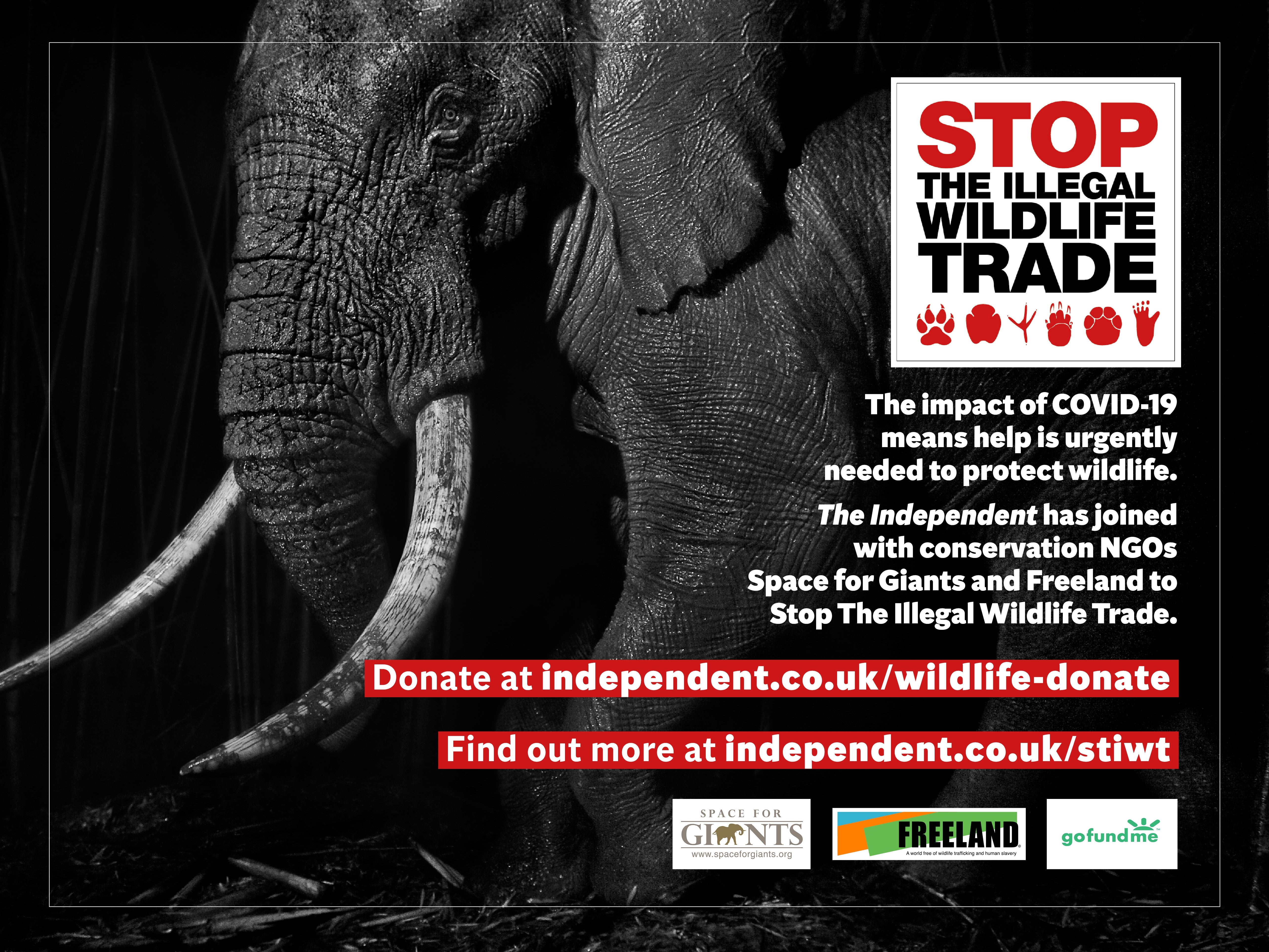G7 nations talk a good game on fighting the illegal wildlife trade, but still aren’t getting serious
It’s time leaders of the Western world matched their rhetoric on conservation with their wallets


Your support helps us to tell the story
From reproductive rights to climate change to Big Tech, The Independent is on the ground when the story is developing. Whether it's investigating the financials of Elon Musk's pro-Trump PAC or producing our latest documentary, 'The A Word', which shines a light on the American women fighting for reproductive rights, we know how important it is to parse out the facts from the messaging.
At such a critical moment in US history, we need reporters on the ground. Your donation allows us to keep sending journalists to speak to both sides of the story.
The Independent is trusted by Americans across the entire political spectrum. And unlike many other quality news outlets, we choose not to lock Americans out of our reporting and analysis with paywalls. We believe quality journalism should be available to everyone, paid for by those who can afford it.
Your support makes all the difference.G7 governments, including the UK, are talking tough on wildlife crime these days, pledging to help halt the horrendous level of poaching and trafficking that threatens countless species with extinction across the globe. But as the director of a frontline conservation organisation that receives aid from some of these wealthy nations, I can tell you that the slaughter and smuggling continue, while politics and greed are still winning the day.
I’ve been investigating and campaigning to stop wildlife crime for 32 years. Most of that time, I and other conservationists pleaded with governments to take poaching and trafficking more seriously. We explained about how this ugly business ranks fourth in the world in black market trades, generating billions in profits for organised crime, and is wiping out populations of iconic animals like rhinos, elephants, and tigers, while also threatening human health through zoonotic diseases.
Thanks to the efforts of many organisations – boosted recently by Covid’s apparent zoonotic origins—we have lately seen presidents, prime ministers, and royalty strengthen their policies and budgets on counter wildlife trafficking.
But wildlife traffickers are still winning. That’s because political promises are still far from commensurate to the resources necessary to stop the destruction.
The G7needs to get serious on wildlife and nature protection. And not just for animals. No matter which theory one subscribes to on Covid’s origin, it’s a zoonotic disease. There are two ways to mitigate zoonotic outbreaks: 1) control and eventually stop commercial trade in wild animals; and 2) reduce destruction of wild habitat, which is often being cleared for industrial farming.
That means more funding for nature protection.
A recent study by globally respected conservation experts estimates that it would cost $26 billion (£18 billion) a year to mitigate earth’s vulnerability to extinctions and pandemics. That’s an average of $133 million (£94 million) per country in the world. Or $3.48 (£2.47) per person. The UK spends over $40 billion (£28 billion) a year on defense; France over $54 billion (£38 billion); Russia $61 billion (£43 billion). The US Defense Department budget last year was $726 billion (£515 billion). The money is there. We’re just not treating nature protection as a national or international security issue.
STOP THE ILLEGAL WILDLIFE TRADE
We are working with conservation charities Space for Giants and Freeland to protect wildlife at risk from poachers due to the conservation funding crisis caused by Covid-19. Help is desperately needed to support wildlife rangers, local communities and law enforcement personnel to prevent wildlife crime. Donate to help Stop the Illegal Wildlife Trade HERE
More funds have been released by the UK, US, and EU in the past five years to support anti-poaching, anti-trafficking, and alternative livelihood programs. But - and this is where it gets tough because my organisation, like others, are afraid to bite the hand that feeds us - truth be told, it’s far from enough.
Trafficking syndicates generate over $20 billion (£14 billion) a year. We’re trying to put them out of business with less than 1 per cent of that. It gets worse. Not only do we frontline groups agonise to access and report on government funds, the money usually arrives late. And then, the lion’s share gets pocketed by large development companies that hire frontline groups to do most of the work.
In the US, we call such firms “Beltway Bandits” because they’re dotted around the Washington, DC beltway, preying on government contracts. Until recently, these development mercenaries were uninterested in wildlife protection because there was no money in it. But the recent political pronouncements on wildlife crime, coupled with a string of multi-million dollar tenders, has attracted attention to a potential growth industry.
These same kinds of companies are located around London and Brussels, with their specialty being the administration of UK and EU contracts. They engage conservation NGOs to make their tenders attractive. In business parlance, we’re known as “bid candy”. Once the firm secures the contract, they find ways to keep 60 - 70 per cent for their overheads and salaries, while drip-feeding to actual protection operations. In one instance, we received our anti-trafficking funds 6 months late. Funds that do make their way to the field rarely support law enforcement, where support is badly needed, but rather more studies and workshops.

We still cash-flow ranger support while waiting for tardy reimbursements, and yes I’m afraid that relates to UK funds too. That means low-paid NGO workers and rangers are often reaching into their own wallets to pay for patrol rations and other components of projects touted in high-level speeches and press releases.
So, guess what happens? Yep, projects slow down or grind to a halt. The development firms find ways of pulling the blinds over Capitol Hill and Whitehall’s eyes, while reporting progress that nobody dares expose for fear of losing their funding. Our experience is the rule, not the exception.
So, next time you hear Boris Johnson or Joe Biden, or some other G7 leader bang on about how much they are doing to fight wildlife crime, ask them how much, and where’s the money. The Brits, Americans and other G7 nations need to match their rhetoric with their wallets. They also need to stop using taxpayer money to finance lavish development firms, and use it to strengthen the frontline against poachers, traffickers, and virus transmissions.
Join our commenting forum
Join thought-provoking conversations, follow other Independent readers and see their replies
Comments